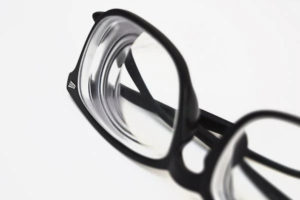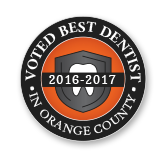 Did you know over 18 million Americans have sleep apnea? Although it’s one of the most common sleep disorders, it’s estimated that 80% of cases aren’t diagnosed. You might believe that snoring is the only complication of the disorder, but sleep apnea can seriously affect your health. Not only can you develop life-threatening health issues, like heart disease, but it can also cost you your eyesight. New research has found a connection between sleep apnea and blindness.
Did you know over 18 million Americans have sleep apnea? Although it’s one of the most common sleep disorders, it’s estimated that 80% of cases aren’t diagnosed. You might believe that snoring is the only complication of the disorder, but sleep apnea can seriously affect your health. Not only can you develop life-threatening health issues, like heart disease, but it can also cost you your eyesight. New research has found a connection between sleep apnea and blindness.
What is Sleep Apnea?
Sleep apnea is a condition that causes frequent pauses in breathing throughout the night. Obstructive sleep apnea is the most common form, which results from the soft tissues in the back of the mouth or tongue collapsing, which creates a blockage in the airway. Each breathing disruption depletes your body of oxygen and interrupts your sleep cycle.
With no intervention, you can develop many physical and psychological complications, like an increased risk for heart attacks and strokes, depression, and memory loss. Sleep apnea is also linked to a higher risk of workplace and auto accidents from decreased cognitive abilities caused by sleep deprivation.
Sleep Apnea and Your Eyesight
Untreated sleep apnea can cause vision changes that can lead to blindness. Various issues are linked to gradual vision changes.
Sleep apnea can cause dry eyes from ocular irritation, increased lid laxity, or abnormal tear break-up time. The issues can be caused by an improperly fitting CPAP mask.
A CPAP machine is the most traditional method of treating sleep apnea. It delivers a steady stream of air pressure through a mask worn over the mouth or nose to prevent pauses in breathing. Although it’s effective, it can lead to eye issues.
Unfortunately, that’s not the only concern. People with obstructive sleep apnea are 10 times more likely to develop glaucoma. The eye disease can lead to vision loss and blindness caused by damage to the optic nerve from low blood oxygen levels.
Protect Your Eyesight and Sleep Soundly
Besides regular eye exams to monitor for vision changes, the right sleep apnea treatment is equally important. As an alternative to a CPAP, you may be a candidate for an oral appliance.
An oral appliance is an effective solution to treat mild-to-moderate cases of obstructive sleep apnea. The custom-fit device holds the tongue and jaw in a more comfortable position to keep the airway open. It prevents pauses in breathing to maintain blood oxygen levels to ensure you get a good night’s rest.
You’ll sleep peacefully knowing your health and eyesight are protected.
About Dr. William C. Poe V
Dr. Poe earned his dental degree from the USC Dental School and has completed continuing education in advanced specialties, like neuromuscular dentistry, orthodontics, and sleep medicine. He is a member of several professional organizations, including the American Dental Association. If you need sleep apnea therapy, contact our office at (562) 280-2119.

